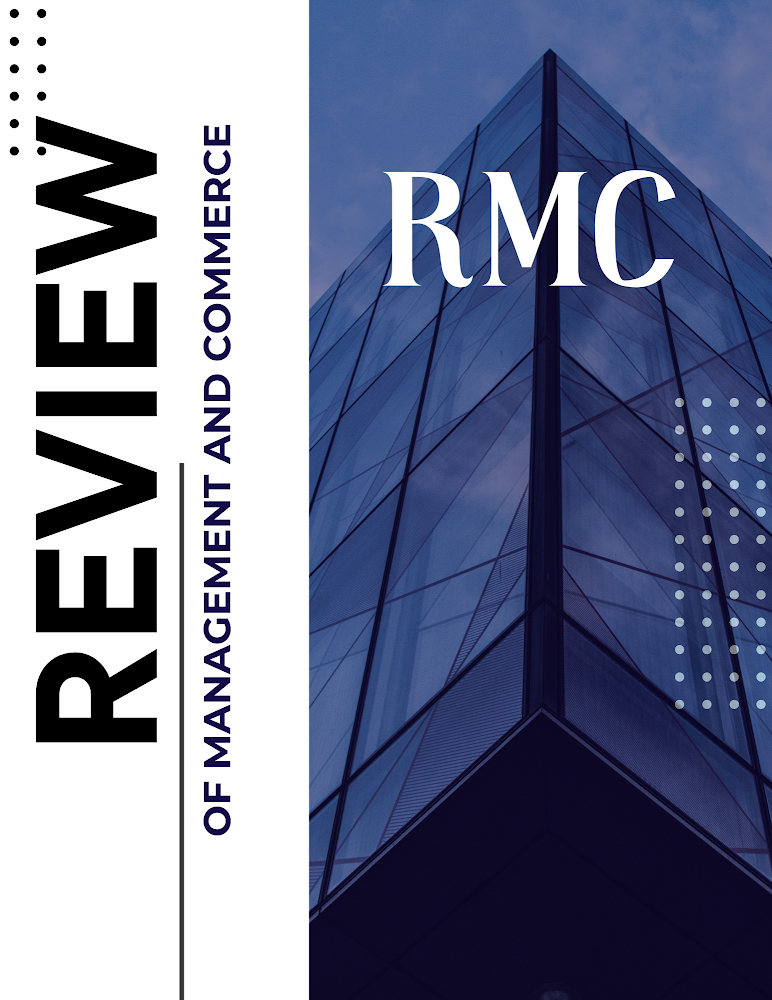Peer review policy
Concerning the quality and standards of journal publication, Review of Management and Commerce (RMC) aims at achieving high level of peer review in offering scientific research outputs. Here’s an outline of our peer review process:
- Desk Review
Purpose: To determine whether this manuscript matches RMC’s formatting standards, the subject area covered and research ethical practices and protocols followed.
Timeline: 1-2 weeks.
Outcome: Studies which do not satisfy fundamental standards for minimum quality are sent back to the authors. If the paper is not considered suitable for external review, the authors are advised within 1-2 weeks.
- External Review
Process: The papers that got to the desk review are then subjected to double-blind peer review in that the author does not know who the reviewer is and vice versa.
Reviewers: Two to three reviewers who have extensive practice in the area will assess the novelty, quality, study design, data analysis, utility, and applicability of the manuscript to the target population.
Outcomes: The decision that the reviewers possibly take are either accept, revisions with or without minor revisions, or reject. However, if the critical issues are found that cannot be fixed, the paper could be declined.
- Suggesting Reviewers
Policy: Authors are not allowed to recommend the possible reviewers. But they may identify any scholars that should not be allowed into the group due to conflict of interest.
- Guidelines for the selection of the reviewers
Qualifications: Candidates for beginning the reviewers’ training may possess a PhD, or their equivalents, and should possess prior academic or professional experience.
Expertise: The reviewers of the manuscripts should have previous publications in the journal or specific field and should not have any relation with the author’s institution in the past 3 years or should not have co-authored any paper with the author.
- Resources for Reviewers
Access: There is concise data base and materials for review and it is available for the reviewers. Special requests for extra handouts may be made.
Publication Ethics for Reviewers
It is agreed that the reviewers have to uphold the generally acceptable ethical standards of RMC through providing an unbiased, timely and confidential review that comprises of pertinent facts. They should:
- Abide by the non-disclosure of the contents of the manuscript and the process of peer review.
- Conduct reviews only in the subject matter that is within their special knowledge.
- Do not bring your deeper personal things in to play the game, especially if they may make you bend the rules.
- Inform the ethical officials of any perceived ethical infraction or any act of misconduct.
The Stages of Peer Review
- Submission of Paper: This is a paper that was developed and written by the author at first submission.
- Desk Review: Checking for compliance with journal requirements by internal assessment (1-2 weeks).
- External Review: Double-blind Peer review by the specialists (5-6 weeks)
- Revision Request: When returning a paper authors are given comments for them to make some alterations that could be minor or major ones (1 week).
- Resubmission: Review of the paper done by the authors and resubmission of the paper with changes (4-8 weeks).
- Second Internal Review: When the tables are completed, the authors shall self-evaluate the revisions, which will take approximately one week.
- Acceptance: Review of publication final decision (1 week).
- Authors should be dully responsive to the various comments that the reviewers have provided, to prevent any delay. Extra time for revisions may be claimed in case students need it.
Resubmission and Revision
Revisions: The majority of the papers are rewritten, or to be more specific, 77 percent of them are revised in one way or another. Authors should ensure that they use the feedback received from the reviewers in a constructive manner towards the improvement of the manuscript.
Resubmission: When submitting revised papers, the authors are expected to provide a clear and comprehensive response to the comments of the reviewers. This process is essential to avoid any further delay in the task completion process.
Appeal/Complaint Process
- Appeals: To appeal a decision or file a complaint one may contact the chief editor at ……email….
- Process: Reasons for appeal may include harm to the client/students, ethical dilemmas, and reasons for rejection. The chief editor will then consider the appeal and pass it to a relevant board member to make a decision on.
English Language Editing
- Authors need to make sure that the papers they produce do not have any spelling mistakes, grammatical mistakes or syntax errors. Freelance writers who are non-native English speakers should ensure they hire the services of language editors.
Plagiarism Policy
- Zero Tolerance: For plagiarism identification RMC employs Turnitin or iThenticate. All manuscripts with similarity above 19% are rejected and returned to the authors.
- In case plagiarism is found after publication, it may be amended or retracted based on HEC and COPE guidelines. In severe cases, the institution of the authors could be contacted as well as information from public affairs office retrieved.
- Authors need to ensure that the work submitted for publication has not been copied or reproduced from any other publications authored by the same writer. None of the papers submitted should be a duplicate or under consideration by another journal.
- This policy goal made sure that Review of Management and Commerce (RMC) continued to produce scholarly papers that are of high standard and free from academic malpractices.


